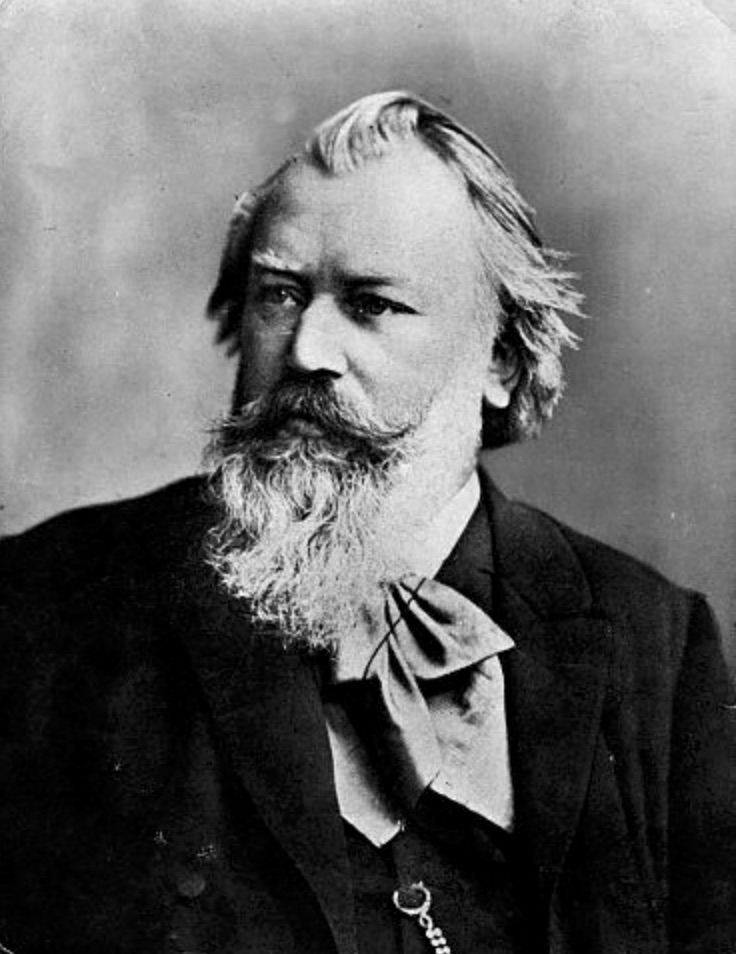
Johannes Brahms was born on May 7, 1833 in Hamburg, Germany. Early in life, he received musical training from his father, but from age seven, he received piano lessons from Otto Friedrich Willibald Cossel and later from Eduard Marxsen. In his early teens, Brahms earned money playing the piano in bars that also served as brothels. The young Brahms gave a few public concerts in Hamburg, but did not become well known as a pianist until his concert tour in 1853 as accompanist to Hungarian violinist Eduard Reményi. During this tour he met Joseph Joachim, Peter Cornelius, and Franz Liszt, who played Brahms’ Scherzo, Op. 4, at sight.
Though he was composing as early as age 11, Johannes destroyed these early works, feeling them inadequate. Later, as a virtuoso pianist, he was able to premiere many of his compositions, working with celebrity performers such as, violinist Joseph Joachim and pianist Clara Schumann. Brahms had mastered the disciplined counterpoint of Bach and was able to merge the techniques of the Baroque era with the newly emerging Romantic style. However, in 1859, when he premiered his Piano Concerto No. 1, it was deemed a failure and described by critics as “old-fashioned” relative to the emerging “romantic era” music of Liszt and Wagner. This disappointment made Brahms reluctant to release his first symphony as he toiled in the giant shadow of Beethoven. Then, in 1868, the successful premiere of his coral work, A German Requiem, gave him the confidence to release his Symphony No. 1–almost a decade since he had begun composing it. He followed with his second and third symphonies in 1877 and 1883 and his fourth and final symphony in 1885. As his reputation grew, honors were conferred upon him and in 1879 he was awarded an honorary doctorate from the University of Breslau for which he composed the Academic Festival Overture.
Brahms, the consummate perfectionist, once reflected, One should never forget that by actually perfecting one piece one gains and learns more than by starting or half-finishing a dozen.
